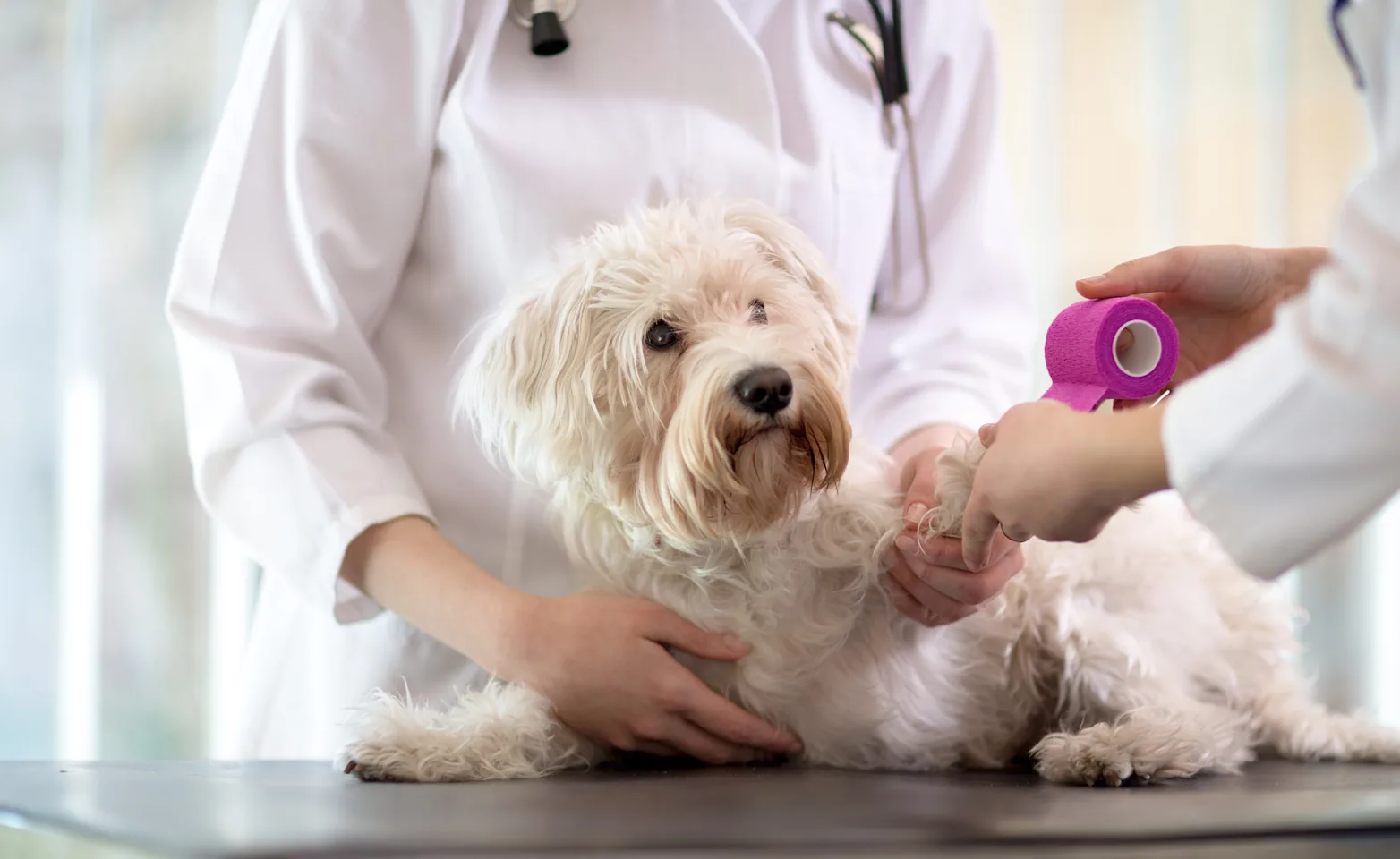Animal Emergency & Specialty Center - Poulsbo (AESC)
Financial Resources
Financial Resources for Veterinary Care
Credit Options:
Care Credit: We accept the CareCredit credit card as a flexible financing option to help you pay for the care your pet needs, when they need it.*
*subject to credit approval. See carecredit.com for details.
Scratch Pay: A one-time loan direct to the veterinarian hospital that allows you to make payment plans directly with scratch pay. Approval can take up to 3 hours. Application does not guarantee approval.
Charitable and Emergency Assistance
Local:
Emerald City Pet Rescue: A pet rescue for all animals from all backgrounds, including abuse, neglect, medical or mental disorders and issues. In the event a client can no longer afford to care for a pet due to emergency or prolonged medical issues they will except surrenders. They will also take over a lot of medical/mental expenses that a lot of other rescues and groups would euthanize. In some cases, by contacting them directly they may also provide financial assistance without the surrender.
KARE: has a grant that the Kitsap County Community can apply for, the information and application can be found on our website.
PAWS of Bainbridge Island and North Kitsap: provides low-income families with emergency financial aid for veterinary expenses.
Seattle/King County Humane Society Pet Project: This supplies assistance to the pets of people with AIDS. They also have a Pet Food Bank for seniors and low-income individuals,
Concern for Animals: Thurston, Lewis and Mason counties only. Aids with veterinary bills, animal feed, boarding or permanent placement. Call 360-456-8176 for more information.
Whidbey's Animal Improvement Foundation: provides financial assistance to qualified low-income pet owners who can't afford emergency medical care for their pets on Whidbey Island. This program is designed to help keep pets and families together. This is evaluated on a case-by case basis.
Rainier Animal Fund: works in partnership with its larger network of veterinary professionals to provide essential veterinary care to families who cannot afford the full cost of treatment in Western Washington.
Washington:
WSU Good Samaritan Fund: The Good Samaritan Fund is used exclusively to treat ownerless or special needs animals that, ideally but not exclusively, also present a teaching opportunity for our students. Good Samaritan funds are only awarded for treatment of animals at the College of Veterinary Medicine at Washington State University.
Military:
Dogs on Deployment: A military member may apply for a Pet Chit for emergency treatment or care and other reasons.
Homeless:
Feeding pets of the Homeless: Helps homeless individuals find places, shelters and temporary housing for them and their pets. Including finding local veterinary groups who can assist with veterinary care for their pets.
Trio Animal Foundation: assists shelters, rescues and individuals by paying the medical bills of HOMELESS pets.
Seniors:
Budkis Fund: Low-income seniors who reside within the Puget Sound area (Lynnwood to Olympia) can receive emergency veterinary assistance, including medications, surgical procedures and euthanasia. Long-term care and life support are not eligible for assistance.
PALS fund (pet assistance for low income seniors) Formally Pet assistance Fund: Assist seniors with veterinary care as well as helping with food and services that individuals may not be able to afford. Contact directly unable to assist with emergency care.
National:
Help a pet: Help-A-Pet’s mission is to provide financial support across the US for pet owners who can’t afford their pet’s medical care. In order to qualify, your annual income must be under $20,000 if you’re an individual household. For a family household, the annual income must be less than $40,000. Since funding is limited, this nonprofit can only provide financial help once per pet.
Pet assistance inc.: Pet Assistance, Inc. offers financial aid for longtime pet owners who can’t pay for emergency treatment. This nonprofit can’t offer financial assistance for new pets, but they can provide advice, guidance, and referrals that have helped pet owners save money on vet care. The grants are issued based on financial need, urgency, and prognosis. United animal Nations: Has a Life Line Crisis Relief program, check to see if you meet qualifications. Animal's needs must be directly related to a disaster emergency. They also have Lifeline Rescue Grants for individuals. The pet must have a verifiable, life-threatening issue with a good prognosis and the owner must be able to show financial need. AHAA : The veterinarian must apply for a grant to treat the animal of a financially challenged individual. The pet owner cannot apply themselves.
FACE Foundation:The FACE Foundation provides financial assistance to animal owners who are unable to cover the full cost of their pets' critical or emergency veterinary care.
Feline Veterinary Emergency Assistance Program: Requirements including life-threatening illness or injury or one that severely compromises the quality of life, but is also considered treatable by the veterinarian. Full funding is rarely available and they expect the owner to contribute what they can.
The Pet Fund: They do NOT fund emergencies (due to time constraints), basic care such as spay/neutering, procedures already in progress, rescue animals not already adopted, horses. They have strict sign-up policies and guidelines. Please see their website for specifics.
Handicapped Pets: Provides information and assistance for caregivers of medically/mentally challenged pets.
Angels 4 Animals: Program Guardian Angel assists when an animal is facing euthanasia or surrender due to lack of finances. The clinic must be willing to work with Angels 4 Animals to verify needs.
The Mosby Foundation: (dogs) Helps to pay medical expenses for sick, abused and neglected dogs,
Live Like Roo: (cats/dogs) Supports pets and owners through a cancer diagnosis by providing financial and emotional assistance. They pay for biopsies and cancer-preventative when warranted.
Bow Wow Buddies: (Dogs only) The Bow Wow Buddies Foundation gives a second chance to sick and injured dogs in need. The nonprofit organization is committed to providing medical care funds to dog parents struggling to cover their veterinary bills for serious conditions.
Zeus Oncology Fund: helps dogs needing cancer treatment. Must be a rescue, must be in a permanent or foster home, must be spayed/neutered.
Frankie's Friends: Is a non-profit foundation dedicated to finding cures and saving pets with cancer and other life-threatening conditions.
Onyx and Breezy: offers help for pets of individuals where medical hardship is present.
Paws 4 A Cure: provides financial aid to qualified applicants for non-routine veterinary care, may give maximum assistance up to $500, as a one-time grant.
Land of Pure Gold: Offers $1000 grants for cancer treatment for working dogs throughout the U.S. and Canada. Must be full-time working dog partner in areas of assistance, detection, search & rescue, law enforcement, military or animal-assisted therapy.
Friends & Vets Helping Pets: Assists families with financial limitations to pay for lifesaving (not life prolonging) treatment for curable diseases such as tumors, broken bones, ambulatory care, expensive medication, or post-surgical prosthetic devices.
Red Rover: We provide financial assistance, resources and emotional support to pet guardians struggling with economic hardship when pets are in life-threatening situations.
Sergei Foundation: first serves residents of North Carolina (focus in Piedmont Triad area), but will assist nationally if funds are available, aids families unable to afford emergency, life-saving care. Does NOT fund on-going/chronic issues that require continual treatments (ex: medicine/insulin, cancer, diabetes).
Brown Dog Foundation: public charity that provides funding to families with a sick pet that would likely respond to treatment, but due to an unforeseen circumstance, there is not enough money immediately available to make it happen.
Rose's Fund's: goal is to provide as much assistance to the people and pets who need it most.
Injured Strays and Wildlife
Resource For Found Wildlife
Center Valley Wildlife Rescue
Location: Quilcene - serving Jefferson and Clallam counties.
Phone: (360) 765-0598 – this is available 24/7 for clients to call and receive advice an what to do if you find an orphaned or injured animal.
Accepts all wildlife when arranged through their wildlife officers.
West Sound Wildlife
Serving Kitsap County
Visit https://westsoundwildlife.org/rescue-rehabilitation/ for information
**Please exercise extreme caution when approaching or handling wildlife, especially injured wildlife, as they can bite/scratch or otherwise cause harm due to pain/fear**
Resources For Stray Pets
Injured Strays
We can accept injured strays from Kitsap and Jefferson Counties (this does exclude animals found on tribal lands).
**Please exercise caution when approaching and handling injured strays. Please use extreme care and awareness when handling as injured animals may strike, bite, or scratch without warning due to pain and fear. You can use items such as a pillowcase to contain injured stray cats if a carrier is not available, you may also use towels or blankets to swaddle injured cats for transport. If you are concerned at all about handling an animal, please call 911 and request assistance from an Animal Control Officer**
Uninjured Strays
Unfortunately, we are unable to house uninjured strays as this limits our ability to assist our other emergency and critical cases needing care. If you find an uninjured stray, please call 911 and ask for an animal control officer. Alternatively, you may visit Kitsap Humane Society’s website for additional resources -https://www.kitsap-humane.org/
Organizations
American Veterinary Medical Association
American College of Veterinary Emergency and Critical Care
Academy of Veterinary Emergency and Critical Care Technicians
International Veterinary Acupuncture Society
Veterinary Emergency and Critical Care Society
Paws of Bainbridge Island and North Kitsap
PAWS of Bainbridge Island and North Kitsap is a volunteer-based nonprofit animal welfare organization that promotes responsible pet ownership and the reduction of pet overpopulation. PAWS features low-cost spay/neuter and veterinary financial assistance for pets of low income residents of Bainbridge Island and North Kitsap, a lost and found pet registry, and a pet adoption program.
Kitsap Humane Society
Heartworm Society
Cat Fancier’s Association
American Association of Feline Practitioners
USDA Animal and Plant Health Inspection Services
Washington State College of Veterinary Medicine
Pet Loss & Grieving
Coping with the impending loss of a pet is one of the most difficult experiences a pet parent will face. Whether your pet is in the final stage of their life, experiencing a life-threatening condition or has been diagnosed with a terminal illness, you and our doctors may decide euthanasia is the appropriate decision for your pet. Our team will calmly guide you through the end-of-life experience to minimize any discomfort or distress. To learn more about pet loss and grief resources please visit this page.
News, Library & General Info
Veterinary News Network VNN
VNN is a national network of veterinarians and selected media journalists who use VNN’s multi-media resources to broadcast local news stories, current issues and advances in animal medicine.
DOGTV
Veterinary Information Network
VeterinaryPartner.com is here to support your veterinarian and you in the care of your companion animals by providing reliable, up-to-date animal health information from the veterinarians and experts of the Veterinary Information Network (VIN), the world’s first and largest online veterinary database and community

First Aid Kit
It's a good idea to prepare a first aid kit beforehand, here are the steps to do so!

Poison and Toxins
The following links to websites and telephone numbers provide great information on topics related to veterinary medicine and pet health care.
